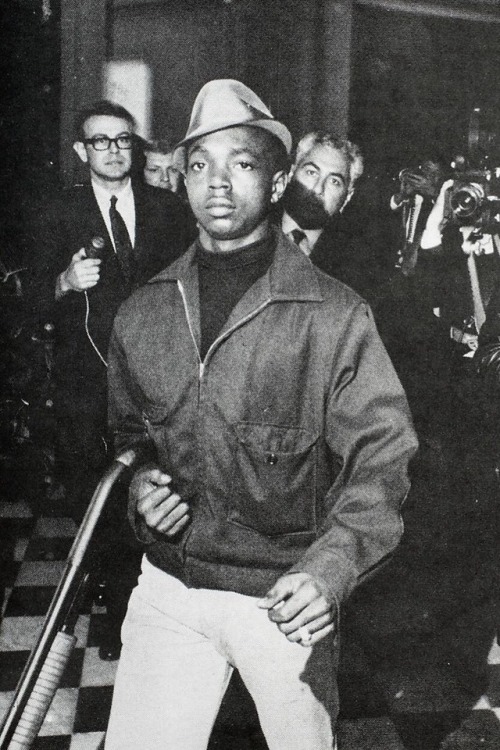Fifty-two years ago, the Black Panthers clashed with the police in Oakland in what analysts say shot the group to fame and inevitably made it stronger. In the midst of the confrontation with the police on April 6, 1968, Robert James Hutton, also known as Bobby Hutton, was shot dead by the police.
Hutton, who was the Black Panther Party’s first recruit, and its first treasurer, became the first to die for the cause of the party at just 17. His death just two days after the assassination of civil rights icon Martin Luther King, Jr. “incensed the party” and he immediately became a martyr for many others in the black power movement.
Huey P. Newton and fellow student Bobby Seale formed the Black Panther Party for Self Defense in 1966 to fight police brutality against the black community in Oakland. The party took on a militant stance coupled with the burgeoning pride associated with the black power movement.
The Panther Party became infamous for brandishing guns, challenging the authority of police officers, and embracing violence as a necessary by-product of revolution. The Panthers were not just about being menacing, however, as the group introduced a series of goals such as fighting for better housing, jobs and education for African-Americans. These plans were laid out in the Panther Party’s “Ten-Point Program.”

Hutton, born in Jefferson County, Arkansas, on April 21, 1950, moved to Oakland with his family after being harassed by white supremacist groups linked to the Ku Klux Klan.
In December 1966 when he was 16, he met Newton and Seale at the North Oakland Anti-Poverty Center and became the first recruit and youngest member of the Black Panther Party.
Believing in the ideals of the party, he was engaged in a series of demonstrations organized by the party. In May 1967, he was among party members who stormed the California State Capitol Building in Sacramento to protest against a new gun bill. The Mulford Act made it illegal to carry guns in public and was a “direct response to the Panthers’ police patrols in the community,” according to reports.

Hutton and several other members of the party were arrested for carrying weapons into the building during the demonstration. That same month, Hutton was arrested again for violating an 1887 law that made it illegal to carry firearms adjacent to a jail.
A year after, race riots broke out nationwide following the murder of civil rights leader King. In Oakland, two days after the killing of King, Hutton was traveling with Eldridge Cleaver and other Black Panther members when a confrontation ensued between them and the police. In the process, Hutton and Cleaver fled to an apartment building where they engaged in a shootout with the police for about 90 minutes.
When Cleaver got wounded in the leg, the two decided to surrender. According to Cleaver, Hutton came out of the building with his hands in the air and stripped down to his underwear to prove that he was not armed. Despite this, Oakland police shot Hutton more than 12 times, killing him instantly, said Cleaver.
But the police claimed that 17-year-old Hutton came out of the building armed and tried to flee before being shot.
With Hutton’s death becoming a major event in the party’s history, more than a thousand people attended his funeral on April 12, 1968. This was followed by a large rally at Lake Merritt near the Alameda County Courthouse which was attended by about 2,000 people including actor Marlon Brando and wife of Cleaver and Panther member Kathleen Cleaver.
Days before the funeral and rally, party co-founder Seale organized a news conference at the site of Hutton’s shooting. He had this to say about Hutton at his funeral: “Bobby Hutton was a living example of infinite love for his people … and their peace and freedom.”
“We salute you, Bobby,” he said while looking down at the open coffin at the Ephesian Church of God in Berkeley, California.
To celebrate his life and ultimate sacrifice, “Lil’ Bobby Hutton Day” has been held annually since 1998 at the DeFremery Park which was later renamed Bobby Hutton Park by authorities.










